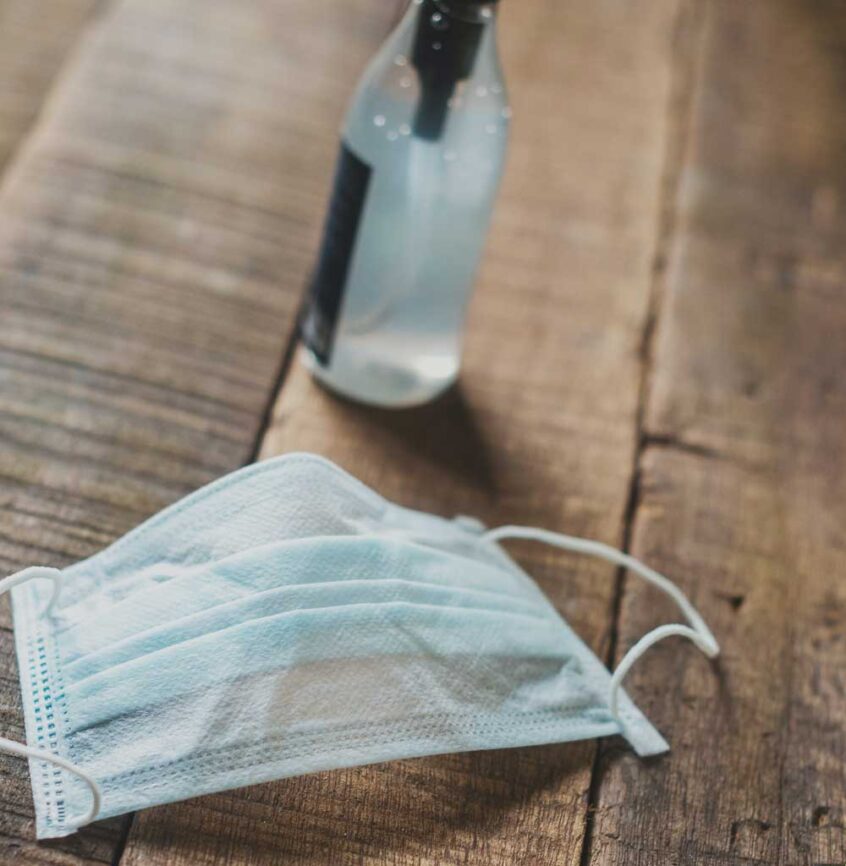The human brain is designed to do a lot of things, not the least of which is to keep us alive. In carrying out this task, there’s part of the brain designed to be afraid of pretty much everything. This part looks at everything you encounter in life and thinks, “How is this thing going to hurt me?” If we went through life consciously thinking everything was going to harm us all the time, we’d never do anything or go anywhere, so the brain has another part that’s designed to filter through the things we encounter and our fears about them and determine what we should actually be afraid of and what we don’t have to be.
When these two functions are working optimally, we’re able to navigate our world successfully. We’re able to take risks and achieve things and feel happier. When they are working optimally, we have a sense of mastery and control over our world. We know with confidence, “If I do X, then Y will happen.” And we can follow that formula through various interactions and experiences and get what we want out of life.
When the two functions are not working together optimally, it can cause anxiety. In general, anxiety is based in fear. Sometimes we have anxiety because there are things to legitimately be afraid of, such as the fear of jumping off the high dive at the risk that you might land wrong and it will hurt. Other times, there is anxiety from the fear of the unknown, such as not wanting to walk down a dark alley late at night, not because of knowing what’s there, but being afraid of what could be. Then there is the anxiety caused by the part of brain that is afraid of everything being active while the logical part knows there is nothing to worry about. When anxiety like this happens, the two parts are experiencing a miscommunication. You know the feeling – logically you can tell yourself everything is fine but in the pit of your stomach you feel anything but fine and you can’t pinpoint why.
As long as we have a sense of mastery and control over our world, everything functions optimally. There may be times when there is miscommunication, but for the most part we can re-establish the connection fairly easily. Life is lived by the formula: If I do X, then Y will happen. If I go to work each day, then I will make enough money to pay all my bills. If I go to the gym in the mornings, I’ll feel well enough to face the day. If I buy this many groceries, it’s enough for the family to have enough to eat for the rest of the month. You get the idea.
COVID-19 and the lockdown orders that came with it took all of that away. Suddenly, people were finding themselves out of work or working from home, unable to engage in social interactions, having their kids home while still needing to be schooled, and unsure when any of it was going to end or if they were going to be able to make it through mentally, emotionally, and financially. All sense of mastery and control was taken away. Suddenly, the formula no longer worked. Many parts of our lives that are essential for a sense of control were suddenly deemed non-essential and we were left trying to figure it out. Figuring it out equated to facing many, many unknowns and desperately trying to establish some measure of control where there was none.
Feeling like we have a sense of control over our lives is essential to our mental health. When we don’t have it, we’ll do whatever we can to try and assert it, even if what we do doesn’t make a whole lot of logical sense.
In terms of the current pandemic, think of the people who bought every bit of toilet paper on which they could get their hands. Is toilet paper a necessity if one catches COVID-19? Very, very unlikely. Buying toilet paper provided people with a sense of control over a situation where they felt like they had none. The purchases served a valid purpose, if not a practical one. Think of the people who protested at the statehouse with loaded guns. Were they planning to shoot up the state legislature or hold them hostage until their demands of ending the lockdown were met? Of course not. The purpose that guns served was to re-establish a sense of control over their world. In a world where their freedom of movement and right to go to work and make money to survive financially was restricted or non-existent, asserting that they still had the right to bear arms created a sense of control that had been lost. Losing that control created intense anxiety for them (and for all of us), and re-establishing it, even in a way that didn’t really make sense (carrying guns during a protest), helped to alleviate it: “I can’t go to work, but I can exercise my right to bear arms.”
This brings us to masks. Objectively speaking and in isolation, for most people, wearing a face mask is not a problem. Wearing a mask is no more inconvenient than washing one’s hand’s after going to the restroom. The key word, though, is isolation. Being asked to wear a mask on its own might not be a big deal, but for some it is when coming on the heels of several months of living in quarantine, being unemployed, being home all day with one’s children, working from home and blurring the lines between work life and home life. All of this while not knowing when or if it will end, living in a frequent state of little control and thus a frequent state of anxiety. Even as things have opened up, they did so with limitations, allowing a small breath of relief amidst a continuing sea of uncertainty. Some things that have opened up have closed back down, creating further uncertainty as that possible threat continues to loom. And then being asked to wear a mask at all times on top of all of it.
In isolation, this would not be a big ask. As the latest demand in a long line of demands adding to stress, anxiety, and uncertainty, the mask for many people represents the straw that has broken the camel’s back. People want to feel again like they can navigate their world with a sense of certainty. They want the old formula back; they want to know that if I do X, then Y will happen. Instead, half the time they aren’t even sure if they’re allowed to do X. For a lot of people, the mask is simply too much when taken with everything else, and so they are responding by outright refusing to do it or desperately searching for evidence that it doesn’t work, even if doing so doesn’t make a whole lot of sense. To a mind trying to re-establish a sense of control and order, it does.
I’m not saying that we shouldn’t wear masks. At least as of this writing, wearing a mask is considered by the health experts studying COVID-19 as an effective way to prevent its spread, along with limiting ventures in public, social distancing, and frequent hand washing. I’m absolutely not trying to justify anyone who yells at a store worker when being asked to wear a mask – that’s unacceptable under any circumstances. As we continue to face this pandemic and make sacrifices in the name of defeating it, let’s do so with understanding and empathy for why some people feel the way they do. Even if the actions sometimes don’t make sense, the feelings behind them are always valid. If we do a better job of trying to understand and empathize with each other, the pandemic will feel a little less isolating, and the positive feelings from that is something we can all understand.

